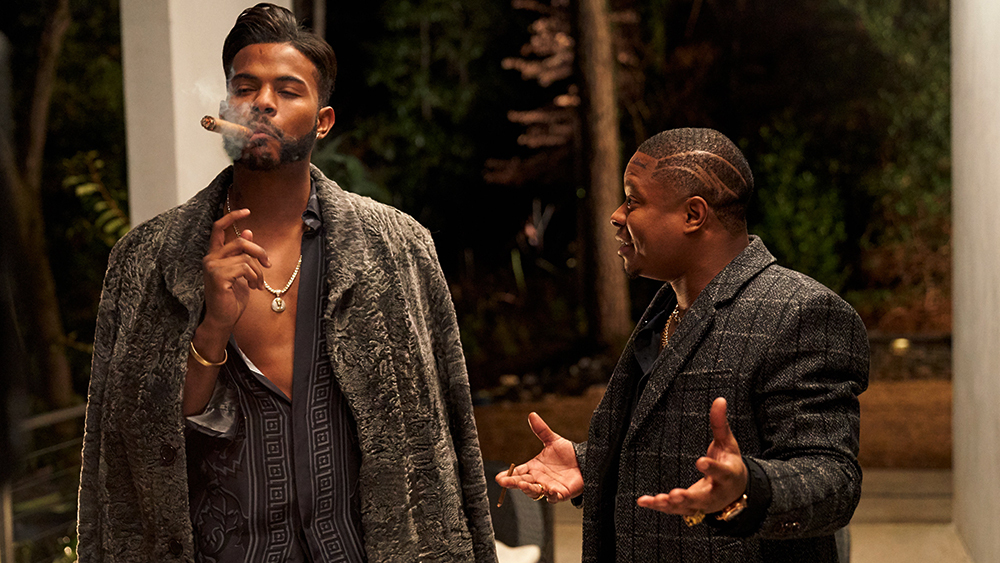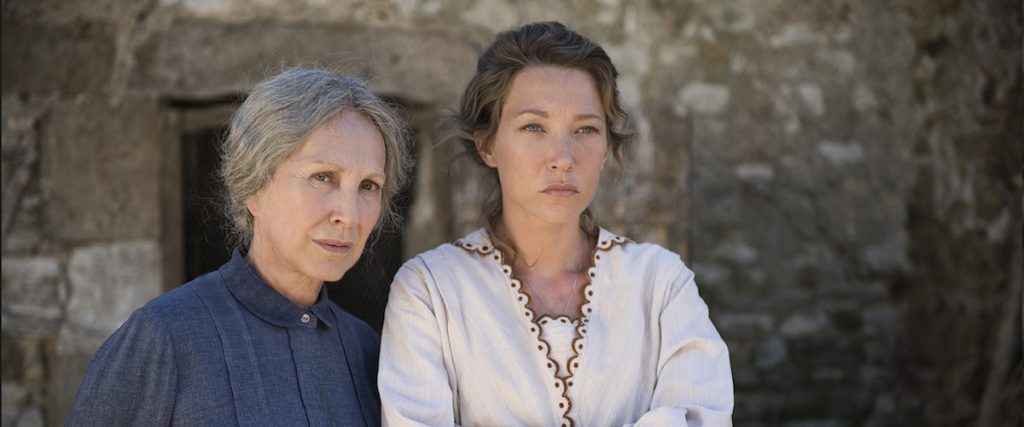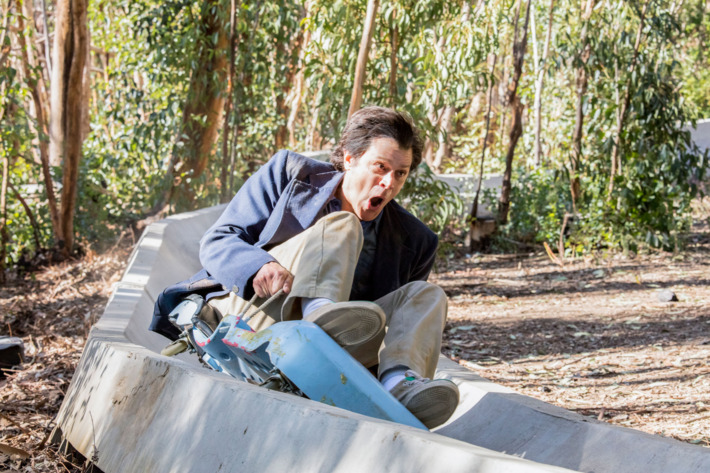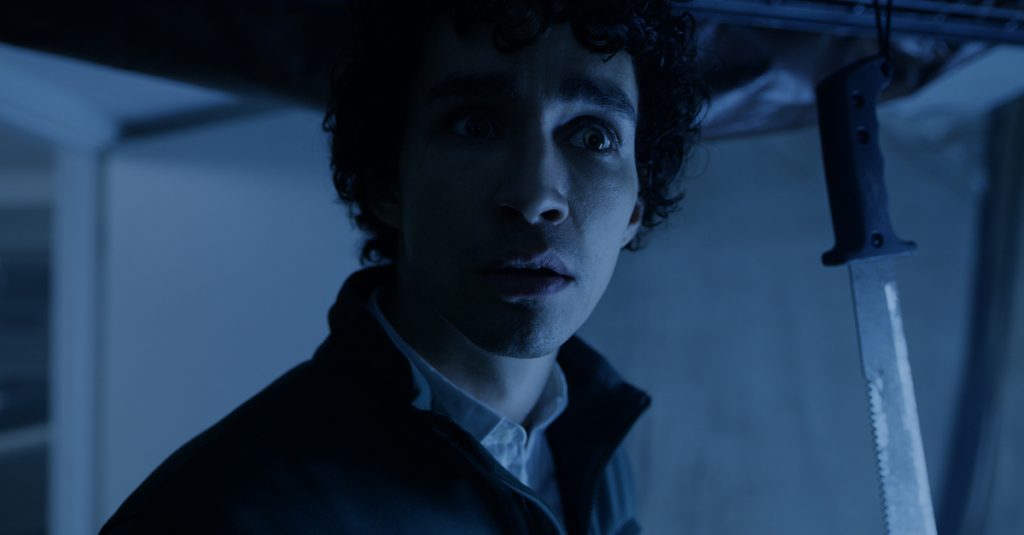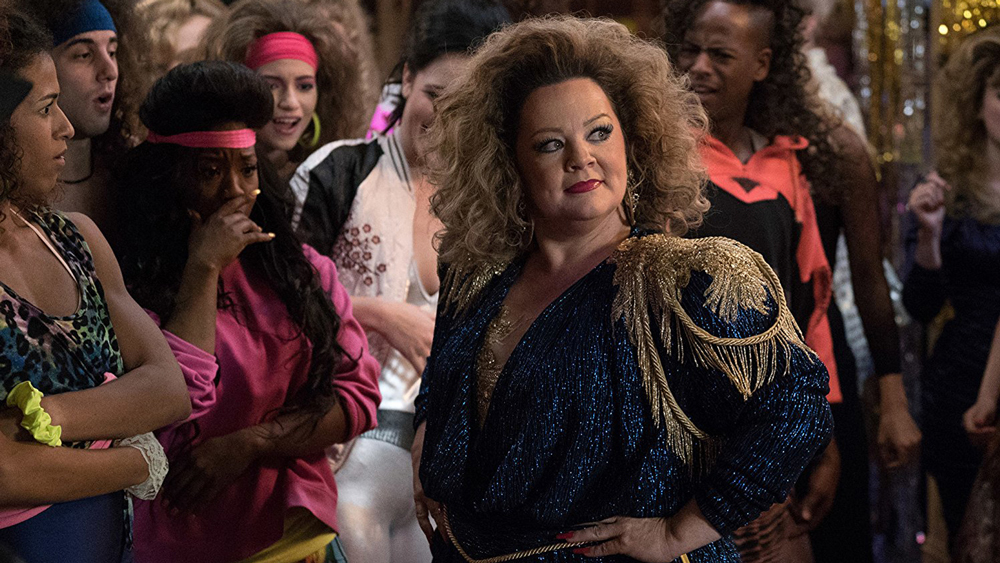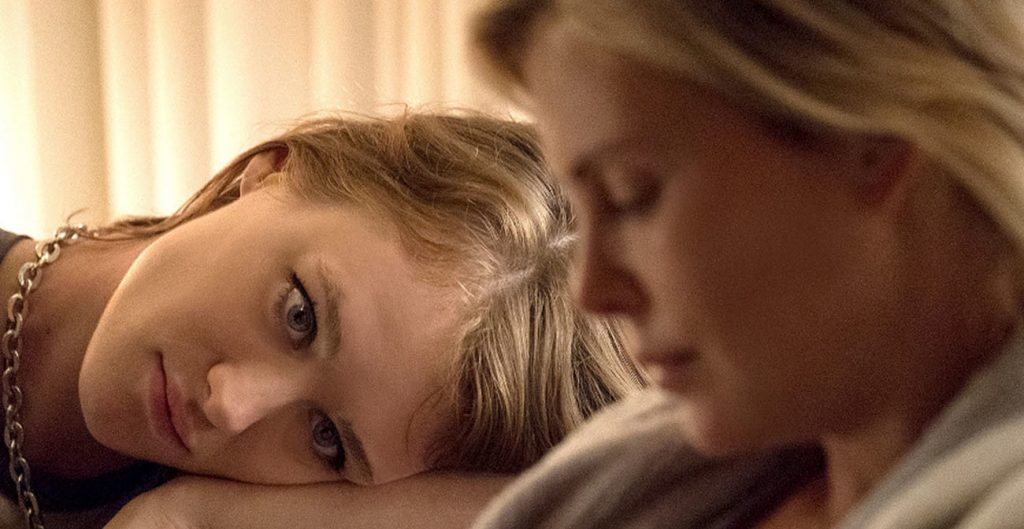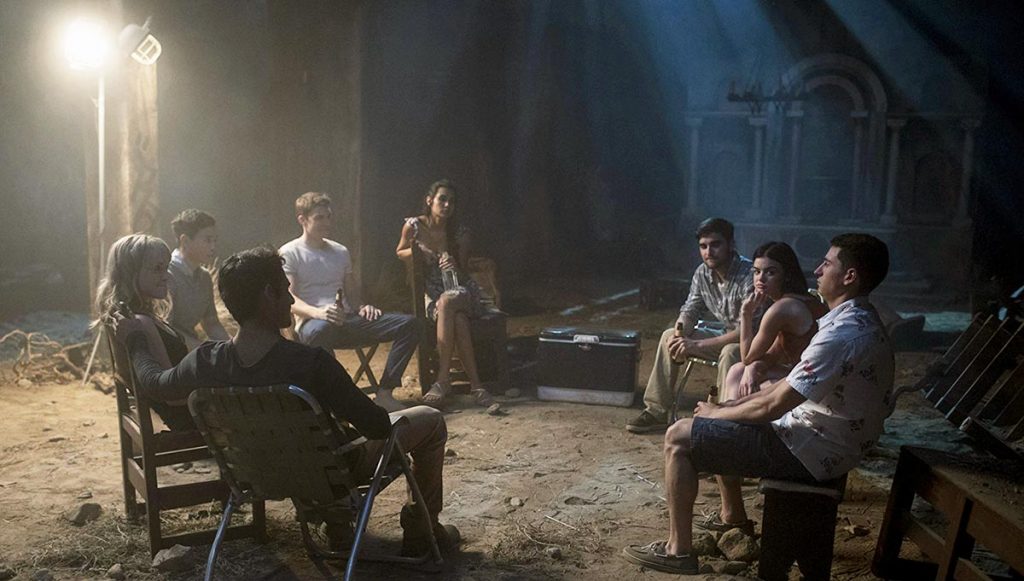SETTING THE STAGE
For film enthusiasts everywhere, especially those, myself included, who live for the underappreciated masters and the nooks and crannies of cinema history, November 29, 2018 was a dark day, the day FilmStruck died. FilmStruck had been the all-too-short-lived streaming home for the revered Criterion Collection and their streaming partners, notably Janus Films. FilmStruck had also recently partnered with Turner Classic Movies (TCM) to provide access to an abundance of classic American cinema. Altogether, in addition to offering a large selection of films released on the Criterion label, the service had also provided its subscriber base with a wealth of ever-shifting selections, both foreign and domestic, from across the many decades of film history.
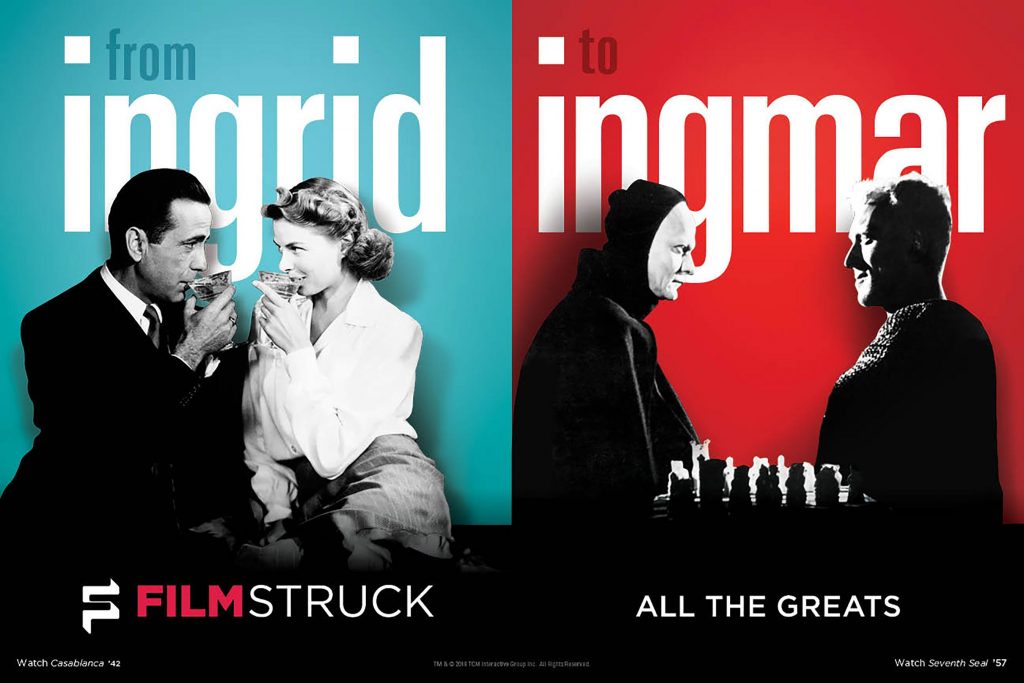
After having experienced the Criterion Collection in past years as merely happenstance as I explored various acclaimed films that happened to be on their discs, 2018 marked a shift of intentionality as I purposely began seeking out films associated with the label, especially once I finally made the decision to dive into FilmStruck. Fortunately, I’m a huge proponent of physical media, especially Blu-ray, and so that already represented the majority of my watching, but I quickly discovered many titles on the channel didn’t have Blu-ray releases. Nevertheless, come January 1, the start of my 2019 adventure with the label, discs were now pretty much my only source when it came to anything Criterion-related. That’s not to say I didn’t stop making astonishing, thrilling, and awe-inspiring discoveries on disc. In fact, the majority of my top 10 Criterion-related discoveries in 2019 were from discs in the Collection. But there’s a lot to be said for the convenience and depth of streaming.
Fortunately, the darkness and despair was short lived, as soon after FlimStruck closed, it came to light that Criterion itself would be providing a streaming service. Finally, after much anticipation, on April 8, the Criterion Channel launched, and I began to discover just how deep the rabbit hole would go. The channel’s extensive partnerships would enable them to provide an even more diverse array of films than FilmStruck had. Right off the bat, I experienced one of the new channel’s most ingenious means of helping its viewers to discover films we may never have otherwise seen. Curated collections.
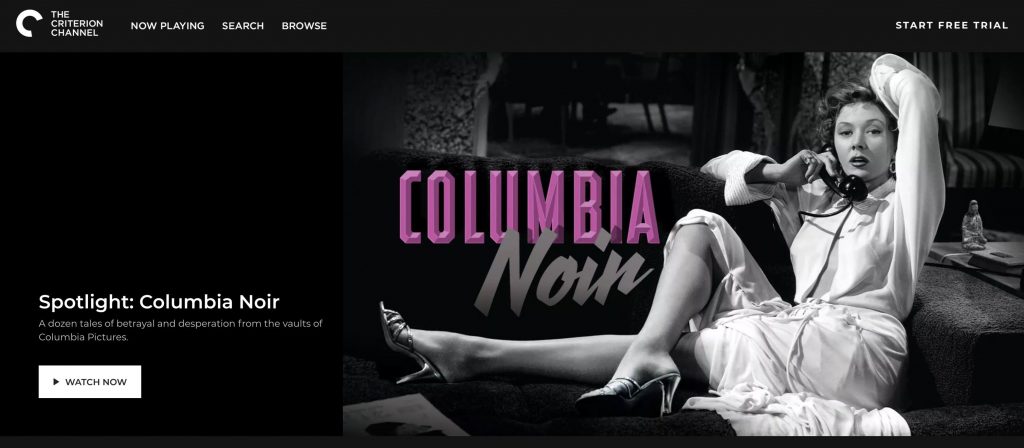
Day one, the first major collection was right there on top of the screen, Columbia Noir. If this was the launching point, a whole group of compelling Columbia Studios films, the vast majority of which had no Criterion ownership, along with a whole host of other films, in and out of the Collection, I knew I was in good hands. So now, with a full arsenal of available Criterion Collection Blu-ray releases and Criterion Channel possibilities I was ready to dive into all sorts of new territory. By the end of 2019, I had experienced 134 of them for the very first time with representation from every decade from the 1920s through the 2010s.
Here’s the full list of Criterion-related titles I watched in chronological order by release date.
CRITERION COLLECTIONS
I wish I could tell you about all the great films I watched throughout 2019, but instead I’ll have to stick to the highlights. Without going into detail, I am particularly happy with 3 box sets I began and will finish in 2020, not a bad film in the bunch and two  genuine masterpieces–The Umbrellas of Cherbourg and Playtime. Those sets features the talents of filmmakers Jacques Demy, Jacques Tati, and the collaborations of Marlene Dietrich and her frequent director Josef Von Sternberg. Along the same lines, many of my channel experiences came via the aforementioned curated collections, which focus on either a specific filmmaker, actor, creative theme or a combination of those. The one and only collection I completed beginning to end, though not for lack of trying, was Pre-Code Barbara Stanwyck, in which she played a wide variety of characters, from a long-suffering mother to promiscuous lover to faith healer to a mail order bride fighting for the love of her husband. That last character is found in The Purchase Price, one of the least appreciated films in the collection that was in fact my favorite of the group.
genuine masterpieces–The Umbrellas of Cherbourg and Playtime. Those sets features the talents of filmmakers Jacques Demy, Jacques Tati, and the collaborations of Marlene Dietrich and her frequent director Josef Von Sternberg. Along the same lines, many of my channel experiences came via the aforementioned curated collections, which focus on either a specific filmmaker, actor, creative theme or a combination of those. The one and only collection I completed beginning to end, though not for lack of trying, was Pre-Code Barbara Stanwyck, in which she played a wide variety of characters, from a long-suffering mother to promiscuous lover to faith healer to a mail order bride fighting for the love of her husband. That last character is found in The Purchase Price, one of the least appreciated films in the collection that was in fact my favorite of the group.

There was plenty I enjoyed from the other collections I partook from, whether I saw many as in the launch day Columbia Noir collection or merely a couple as in the Fred and Ginger grouping that featured who else but Fred Astaire and Ginger Rogers, a pair that can’t help but put a smile on your face with their chemistry, dancing talent, and synchronicity. The noir set gave me the opportunity to finally discover Fritz Lang’s genre masterpiece The Big Heat as well as his also outstanding, though underrated Human Desire. I was additionally grateful for the opportunity to explore the contributions of women in early cinema through a trio of Dorothy Arzner films, one of the pioneering women directors, headlined by Craig’s Wife, as well as a pair of George Cukor films that put a spotlight on his complex, unforgettable heroines. Both The Women, which features the unique casting of 130 female speaking parts and not one male on camera, and A Woman’s Face made for rich and heartfelt viewing.
My other big push came at the very end of the year as I simultaneously gobbled down soon-to-be-expired entries from the Val Lewton and MGM Musicals collections wherein I found some fun, some thrills, and three new favorites, from an ultra dark classic horror mystery featuring Satan worshipers and suicide, to emotional romantic drama in musical form provided by the likes of Judy Garland and Gene Kelly, to a film of pure joy, silliness, and dreams of romance with the sunny Debbie Reynolds being pursued by the awkwardly charming Donald O’Connor. Those films are The 7th Victim, For Me and My Gal, and I Love Melvin, in that order.
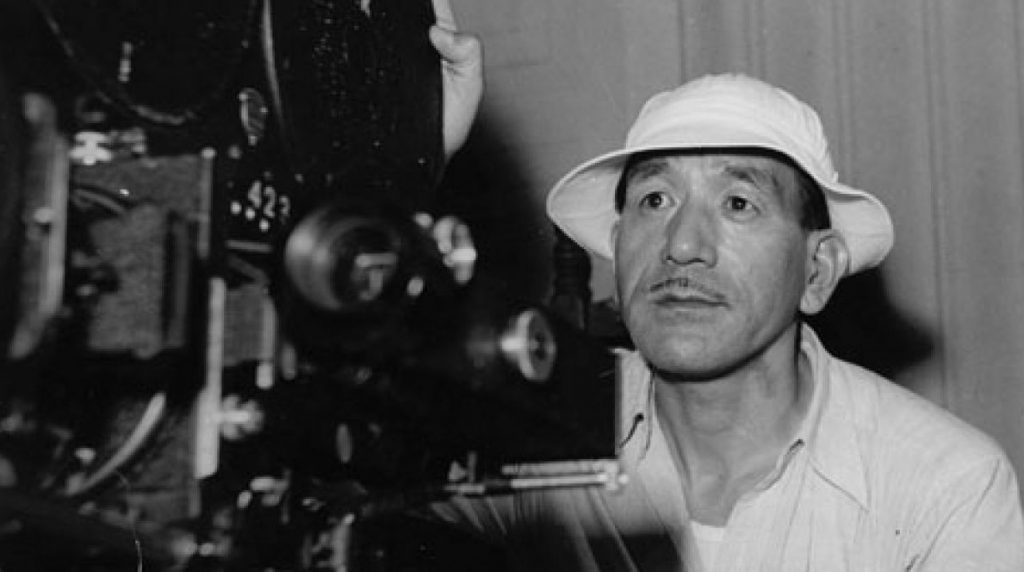
About mid-year, after having seeing there were a massive number of Yasujirō Ozu films on the channel, a master director I had discovered the previous year and whose work intrigued me, I was inspired to try something truly ambitious, my biggest film-watching project to date. I would begin a chronological deep dive through every Ozu film I could access. By year’s end, I had journeyed through his first 10 films, though a couple only exist in part. It’s been an immensely rewarding experience watching them in order to see the growth of his film-making skills, the types of stories he tells, and to see his style progress over time. In the few short years these first films have covered, I’ve been able to pick up on subtle shifts in direction such as his heavily Hollywood influenced beginnings to him starting to develop his own distinct style. My favorite of these early years, Tokyo Chorus, is a deeply emotional family drama where a man loses his job trying to stand up for a coworker, which throws his family into hardship. Those who look ahead know emotional family drama would become a mainstay in Ozu’s work.
TOP 10 CRITERION DISCOVERIES
Now we come to the main event, the best of the best, where I highlight my top 10 Criterion-related discoveries of 2019, plus an honorable mention. These were the films that grabbed the whole of my heart, mind, and spirit, showcasing complete package film making, from script to cinematography to acting to direction to music.
Note, these titles were extracted from my overall list of my top 20 first-time watches during 2019.
Honorable Mention:
La Jetée
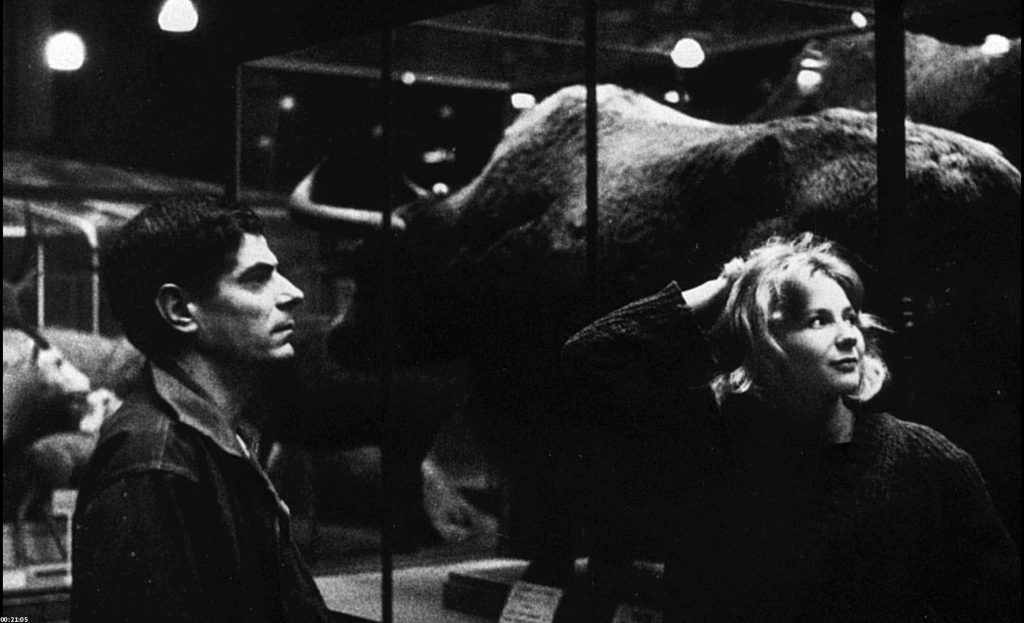
Year: 1962
Director: Chris Marker
Genre: Short, Drama, Romance
Cast: Jean Négroni, Hélène Chatelain, Davos Hanich, Jacques Ledoux, André Heinrich, Jacques Branchu, Pierre Joffroy, Étienne Becker, Philbert von Lifchitz, Ligia Branice
A 28-minute genius work of art. The time travel plot, as mind bending as it is, is simply window dressing to the meditation on love, memory, and the attempt to attain the unattainable or regain what is forever lost that lies beneath. Rarely has so much been accomplished with so little. Through [almost] nothing but a set of still pictures and narration, Marker sets our imaginations alight, and we ourselves become captivated with this entrancing woman once frozen in a snapshot of memory.
Upon the prisoner’s re-entering the past, the juxtaposition of music and image creates a transportive experience that makes you want nothing but to rest in those peacetime moments indefinitely all the while knowing the apocalypse is just around the corner. Likewise when the time-traveling prisoner and the woman he was seeking are together. There is so much life in the still images that you can almost sense them moving but in the way that life moves when you’re sitting quietly with someone you adore simply adoring their presence, and time just fades away. And then comes a look. Just briefly, but one that you will never forget. But these moments are fleeting, and time in fact does go on and that moment is forever gone.
#10 – Arsenic and Old Lace

Year: 1944
Director: Frank Capra
Genre: Comedy, Crime, Thriller
Cast: Cary Grant, Priscilla Lane, Raymond Massey, Jack Carson, Edward Everett Horton Peter Lorre, James Gleason, Josephine Hull, Jean Adair, John Alexander, Grant Mitchell
Who knew a movie featuring serial killer sisters that’s directed by the guy who made such moving slices of melodrama like It’s A Wonderful Life and Mr. Smith Goes To Washington could be so freaking funny? Cary Grant kills it as the just-married and utterly flummoxed Mortimer Brewster who is simply trying to get ready for his honeymoon at his family home when he stumbles across a corpse upon which his aunts happily reveal to him that they’ve been killing lonely bachelors as a service to them. As if this wasn’t wild enough, Mortimer’s brother Teddy thinks he’s Teddy Roosevelt, and his other brother, Jonathan is himself a murderer on the run with his own dark intentions. But murder turns to farce as the comedy of errors and miscommunication pile up. The plot is beautifully orchestrated, but the sheer incredulity alone that Grant hilariously shows at the ever increasing madness around him is alone worth the price of admission.
#9 – Solaris
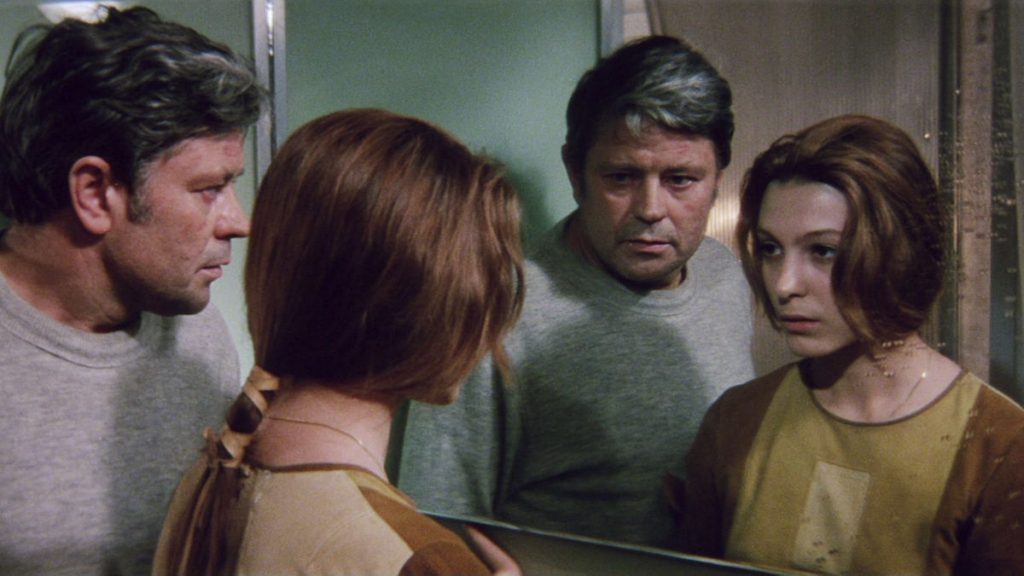
Year: 1972
Director: Andrei Tarkovsky
Genre: Drama, Mystery, Sci-fi
Cast: Donatas Banionis, Natalya Bondarchuk, Jüri Järvet, Anatoliy Solonitsyn, Nikolay Grinko, Vladislav Dvorzhetsky, Georgiy Teykh, Sos Sargsyan, Olga Barnet
Even more than the main character Kelvin (Donatas Banionis) and despite her not showing up for some time, Solaris thrives on Natalya Bondarchuk’s magnetic portrayal of Hari, Kelvin’s long-dead wife who has suddenly appeared again… and again… and again. Kelvin himself represents a relatable everyman, and it is through him we are transported from what remained of his life and relationships on Earth into a surreal, contemplative, and ever more disturbing experience on a nearly empty space station in growing disarray. The station is hovering over an alien ocean world full of fog and mystery. Through Kelvin, our attention is ever drawn to Hari, and it is the intimacy her present manifestation shares with him, an intimacy defined by their past relationship, through which Tarkovsky provides the core of his exploration into what it means to be human.
Clearly, human individuals are unique in a way that other creatures are not, a distinct nature that even a carbon copy cannot emulate, try as they might. Another side of our humanity is our attachment to one another, none more so than in that unifying relationship of marriage, where two become one flesh. The longing that comes from the loss of that relationship can be so intense that perhaps one would consider a carbon copy substitute, even knowing it’s not the same person?
#8 – The Life and Death of Colonel Blimp
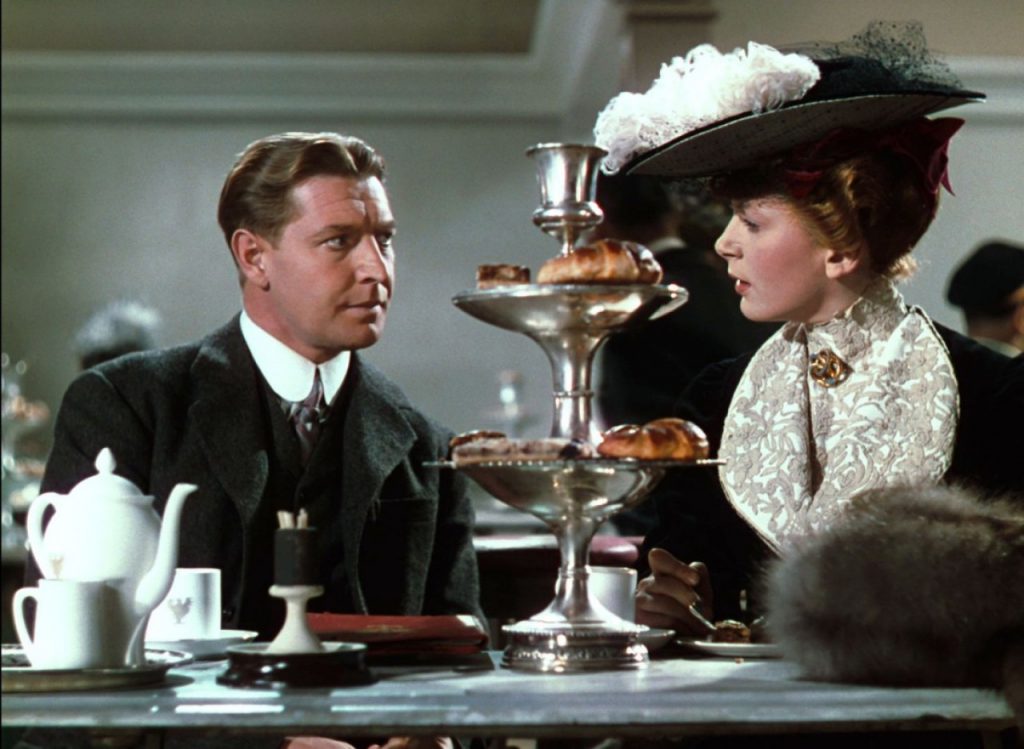
Year: 1943
Director: Michael Powell, Emeric Pressburger
Genre: Drama, Romance, War
Cast: Roger Livesey, Deborah Kerr, Adolf Wohlbrück, Roland Culver, James McKechnie, Arthur Wontner, David Hutcheson, Ursula Jeans, John Laurie, Harry Welchman, Robert Harris
An epic rivaling the indomitable Lawrence of Arabia that gives flesh and meaning to what had seemed a mere caricature of a man. The viewer is faced with such human complexity in this study of the fictitious General Clive Candy (Roger Livesey) that he is himself forced to contemplate the whole of his own past, how it has affected his present, and what the impact will be on his future and the future of those who will come after him.
The depth and weight Powell and Pressburger were able to instill into the film is even more profound when one considers it having been made in wartime, when the fate of the world was yet unknown. They also demonstrate an attempt to understand the nature of that present war and how it came to be that all of Britain (and the world) was fighting for its very existence against the disastrous threat of Nazism. The acting is chock full of so many delightful subtleties and the dialogue is incredibly well written, detailed with emotion and color and memory. I also must give special attention to Deborah Kerr’s extraordinary multi-role performance, no doubt helped by the costuming and makeup talent.
#7 – The Umbrellas of Cherbourg
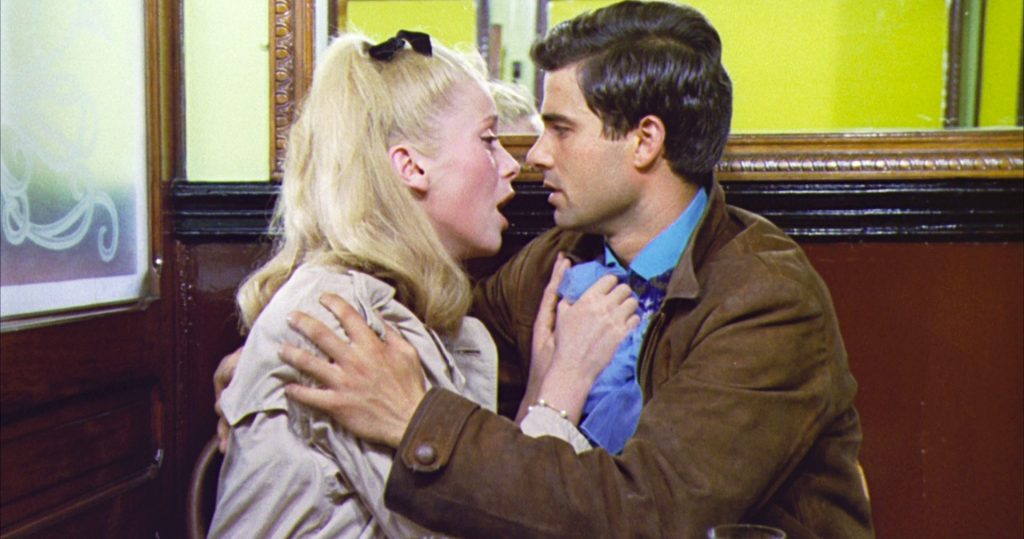
Year: 1964
Director: Jacques Demy
Genre: Drama, Musical, Romance
Cast: Catherine Deneuve, Nino Castelnuovo, Anne Vernon, Mireille Perrey, Marc Michel, Ellen Farner, Jean Champion, Pierre Caden, Jean-Pierre Dorat, Bernard Fradet, Michel Benoist
Jacques Demy is a master manipulator of the heartstrings and intimately familiar with the intense passions and longing that come with young love. The Umbrellas of Cherbourg left me with bittersweet tears and a tight ball of conflicted emotions as sadness and joy fought against one another within my soul. But it’s not only emotions Demy demonstrates artistry over. The frame throughout explodes with bright, bold colors and he collaborates with composer Michel Legrand to provide a soul-stirring musical score with powerful songs. Though this is no Hollywood musical as every word of dialogue is sung, often in a subdued, melancholy manner due to the ever-present conflict even amidst joy, which plays in subtle ways against the colorful backdrops.
While Catherine Deneuve’s character Geneviève takes center stage through much of the film, every romantic relationship and desire, whether given short or significant attention, is fueled with earnest intention and truthfulness. There is absolutely nothing casual about any of the romance. But speaking of Deneuve, the pained longing and desperation expressed in her face and eyes broke me. Through her and Guy’s (Nino Castelnuovo) forced separation, we are made to feel the misery of the not knowing and the consequences of the impossible choices that life and our own actions force us to make when we’re desperate not to have to make them.
#6 – Wild Strawberries
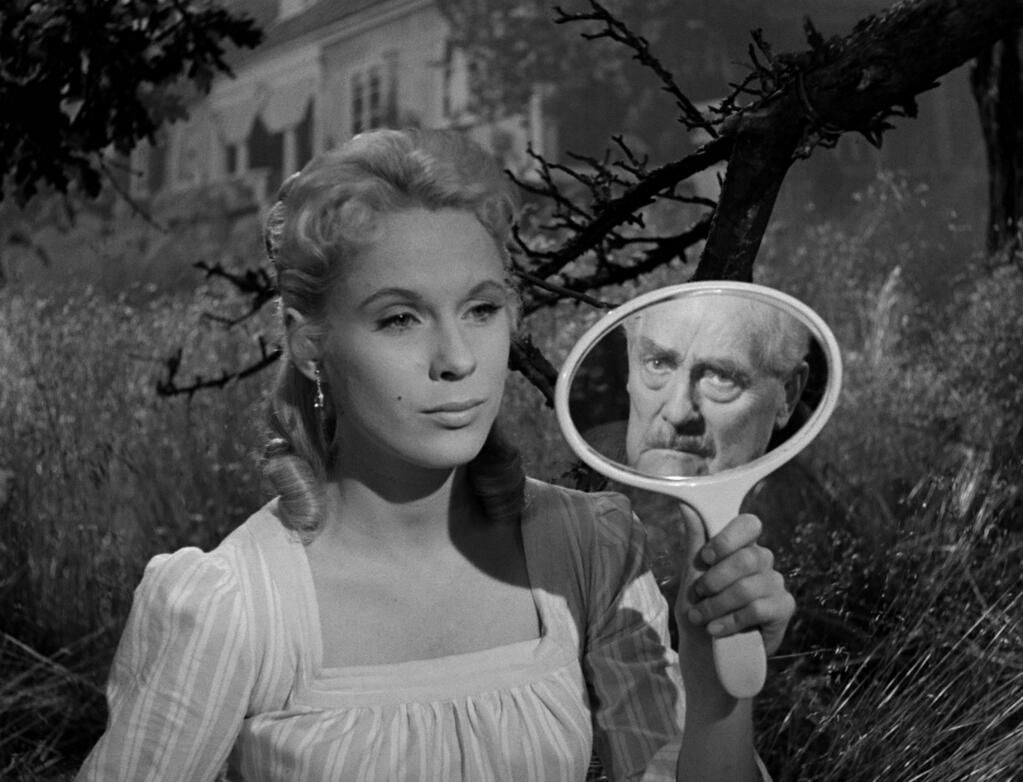
Year: 1957
Director: Ingmar Bergman
Genre: Drama, Romance
Cast: Victor Sjöström, Bibi Andersson, Ingrid Thulin, Gunnar Björnstrand, Jullan Kindahl, Gunnar Sjöberg, Max von Sydow, Åke Fridell, Ann-Marie Wiman, Gunnel Broström
A deeply introspective tone makes Ingmar Bergman’s Wild Strawberries immensely relatable, despite the often surreal quality of the film and the vast age difference between 78-year old doctor and widower Isak Borg and the average viewer, especially when we discover he and his much younger estranged son Evald suffer from a similar darkness of the soul that has brought each to their own crisis point. Victor Sjöström plays Isak with such sensitivity that he makes us care about his inner turmoil all the while he’s showing himself to have become an insensitive and grumpy old man to those he should be closest to.
The film opens with a surreal nightmare, which sets Isak face to face with the immediacy of his mortality with vivid symbolism. This begins a literal and figurative journey, the former a shared road trip with his pregnant daughter-in-law battling her own demons and with those they pick up along the way, including a girl named Sara, played by Bibi Andersson, who reminds him of the Sara he thought he would marry as a young man (also played by Bibi Andersson). These encounters on his literal journey propel Isak into a deep inner journey of sentiment, regret, and hope that serves to change how he sees himself and the world around him.
#5 – The Big Heat
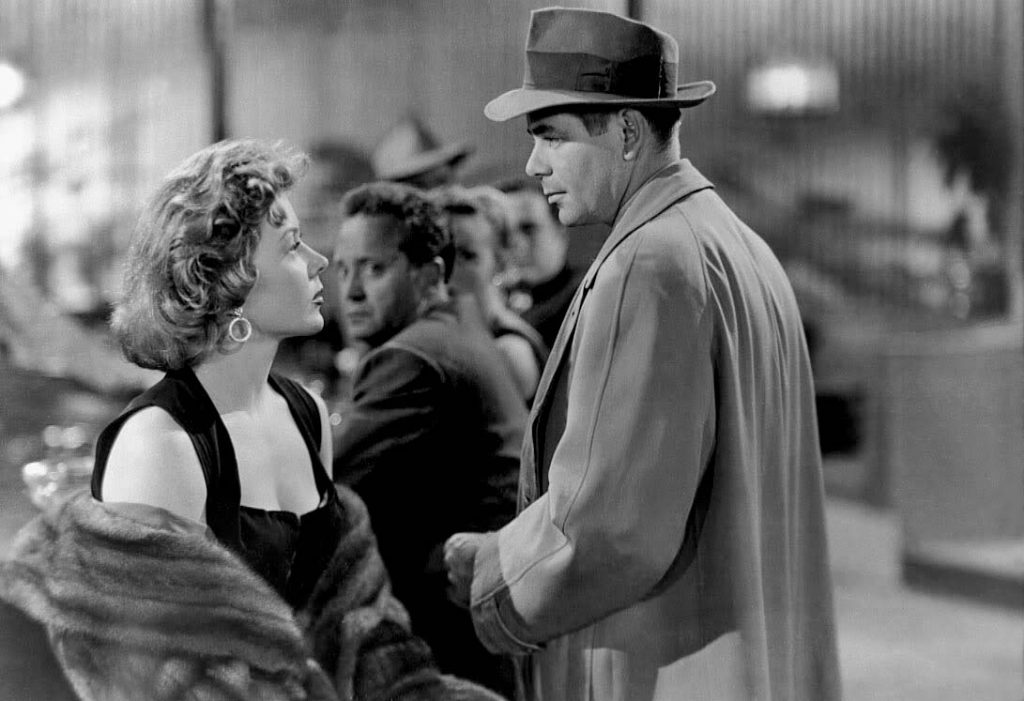
Year: 1953
Director: Fritz Lang
Genre: Crime, Film-Noir, Thriller
Cast: Glenn Ford, Gloria Grahame, Jocelyn Brando, Alexander Scourby, Lee Marvin, Jeanette Nolan, Peter Whitney, Willis Bouchey, Robert Burton, Adam Williams, Carolyn Jones
Never has so much tension been wrought out of a boiling pot of coffee and rarely does a final line land with such foreboding potency. WIth a screenplay written by actual former crime reporter Sydney Boehm, Fritz Lang’s The Big Heat unleashed upon the world one of the most brutal film noirs of the classic era. With no holds barred, Lang unhesitatingly reveals the world as a place that feels cold, hopeless, vicious, and full of infidelity. It’s a world populated by the mafia, dirty cops, and promiscuous women, and by making it clear that no one is safe, good or bad alike or anywhere in between, Lang establishes an environment loaded with tension, both for physical danger as well as moral compromise.
Glenn Ford is ideally cast as the good guy homicide detective Sergeant Bannion who starts out a positive well-intentioned family man but soon finds himself caught up in mob brutality while trying to solve a case. In his anger and frustration, the cracks in his good-guy persona quickly develop and he starts to look and more like the criminals he’s pursuing. Gloria Grahame is also outstanding as Debby Marsh, girlfriend to Vince Stone, second-in-command to the local mob boss. Despite the company she keeps, she demonstrates an awareness and intelligence and an appreciation of moral uprightness in Bannion when he stands up to a nightclub singer who Vince abuses. It seems to be the spark she needs to seek a way out of the only lifestyle she’s known. So while one character is on the descent, the other is rising up.
#4 – The Elephant Man
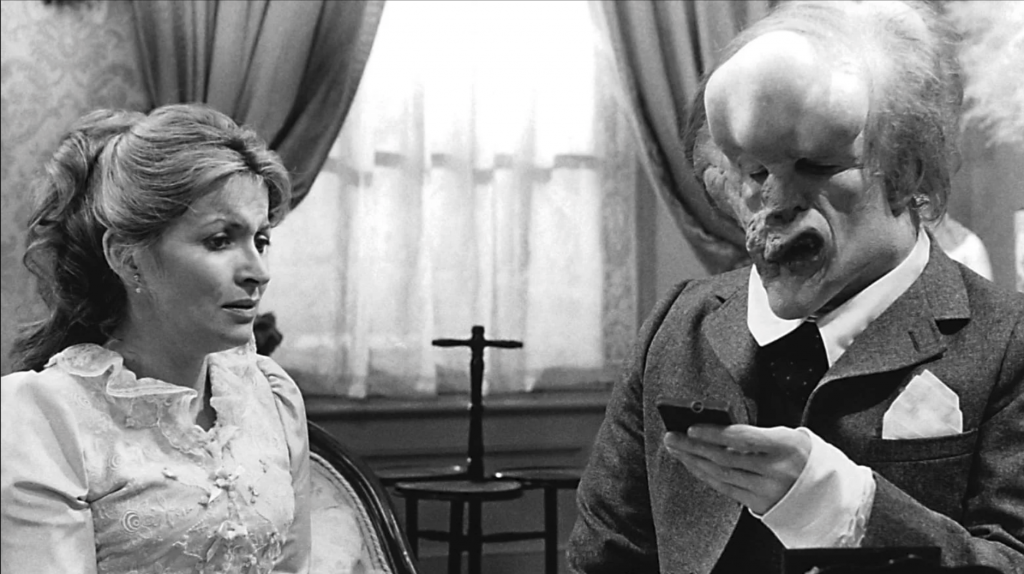
Year: 1980
Director: David Lynch
Genre: Biography, Drama
Cast: Anthony Hopkins, John Hurt, Anne Bancroft, John Gielgud, Wendy Hiller, Freddie Jones, Michael Elphick, Hannah Gordon, Helen Ryan, John Standing, Dexter Fletcher
Carrying on the torch of early 20th century filmmakers like Tod Browning (Freaks) who want to inspire us to care for those society has rejected and abused, David Lynch’s The Elephant Man eschews the distortion of surrealism for the distortion of humanity and a trumpets a desperate call for empathy and kindness. Lynch’s most important choice is to unmask John Merrick (the eponymous character’s real name) early on. The more he shows us John’s (John Hurt) intelligence, faith, ability to create and appreciate beauty, and his longing for human connection, the more monstrous those who would be cruel and take advantage of him appear. By the point he’s crying out that he’s a human being, not an animal, he’s the only one present who isn’t acting like one.
Hurt’s performance is one for the ages, both in physically presenting himself as this horribly disfigured man as well as from the soul that pours out of his eyes. Anthony Hopkins is likewise terrific as Dr. Treves. We sense his deep compassion for John and yet he’s hardly perfect as he comes to realize about himself. Despite his good intentions, he realizes he and his hospital staff are treating John with the same lack of humanity as John had endured in the circus. I loved seeing the pure care and affection that Mrs. Kendal (Anne Bancroft) had for John. She is wholly unaffected by his outward appearance, seeing straight into the soulful kindness and goodness of the man’s heart. And she’s proud to show him honor in public as well. What an inspiration!
#3 – Autumn Sonata
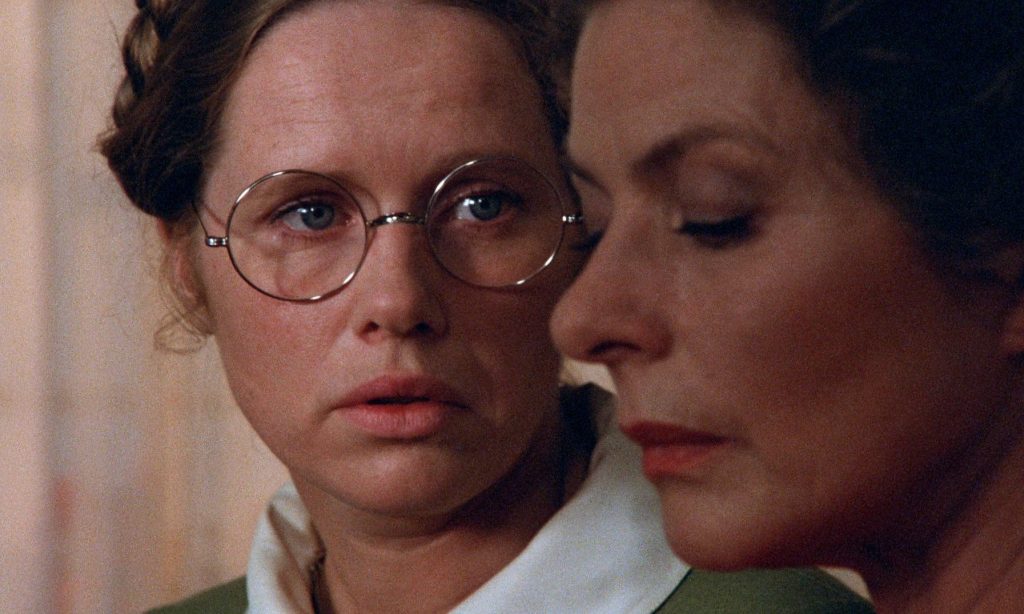
Year: 1978
Director: Ingmar Bergman
Genre: Drama, Music
Cast: Ingrid Bergman, Liv Ullmann, Lena Nyman, Halvar Björk, Marianne Aminoff, Arne Bang-Hansen, Gunnar Björnstrand, Erland Josephson, Linn Ullmann
After several previous attempts to fully appreciate the morally, philosophically, and artistically dense films of Ingmar Bergman, this one was the key to finally unlocking my ability to love one of them. I adore movies that make me feel, and let’s just say that if you ever wanted to know what the emotional equivalent of going 12 rounds with a prize fighter would be, my suggestion would be to watch the pulse-pounding bout herein between Bergman regular, Liv Ullmann and the incomparable Ingrid Bergman, who play a daughter and her estranged mother respectively. That daughter, named Eva, is the troubled wife of the village pastor, and her mother Charlotte is a highly accomplished and well-traveled pianist. Both have to face the disappointment and frustration that has come with choices that were long ago made, especially those due to Charlotte’s career pursuits.
If we’re honest, emotional baggage is always going to be a factor between mothers and their daughters. Ingmar takes advantage of this reality by heaping insult onto injury and creating deeply complex individuals whose fully fleshed out characters and rich histories bear scars that run incredibly deep. Reconciliation is the unstated desire, but as long-held secrets, selfish desires, and bottled up trauma are dredged up even the possibility of achieving that reconciliation is going to unleash all kinds of misery, frustration, rage, and despair. For 90 minutes, Ingrid and Liv are this mother daughter pair. With exacting performances that never once cross the line into overacting, they are taken to the limit as emotion pours out of each of them in a mesmerizing, soul-crushing plea for understanding and appreciation. By the end, the viewer feels as exhausted as the couple on the screen.
#2 – Barry Lyndon
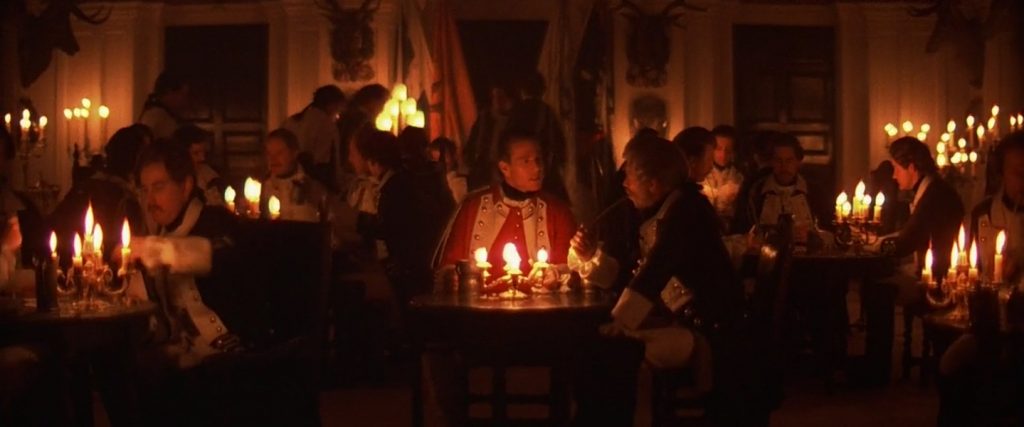
Year: 1975
Director: Stanley Kubrick
Genre: Adventure, Drama, History
Cast: Ryan O’Neal, Marisa Berenson, Patrick Magee, Hardy Krüger, Diana Körner, Gay Hamilton, Frank Middlemass, Arthur O’Sullivan, Godfrey Quigley, Leonard Rossiter, Philip Stone
It amazes me how Kubrick could seemingly take any genre and make a masterpiece out of it. This is his take on a 1700s period film. The sumptuous beauty of the cinematography presents an experience akin to a relaxing stroll through a gallery of richly detailed paintings, complete with narration and a gorgeous classical music compositions, except in the rare moment when the calm is unceremoniously broken and even the camera is set loose in the ensuing chaos. In contrast to the beauty of the camerawork is the only sometimes sympathetic man at its center, Redmond Barry, played to subtle perfection by Ryan O’Neal.
Barry is repeatedly given opportunities to put his past bad choices behind him and start anew, often in even better shape than he was before, but he keeps failing to overcome the lusts that drive him leading him to spurn those opportunities. He finds pleasures for a time, but those pleasures, those choices to act evilly towards not only strangers but eventually even his own wife and stepchild come at a severe cost. The defining duel of the film is masterfully filmed with immaculate detail and taking what had been a mostly relaxing viewing up to that point and ever so slowly infusing ounce upon ounce of suspense, creating intense discomfort for the characters on screen and the viewer alike.
And my #1 favorite Criterion discovery of 2019 is…
Bicycle Thieves
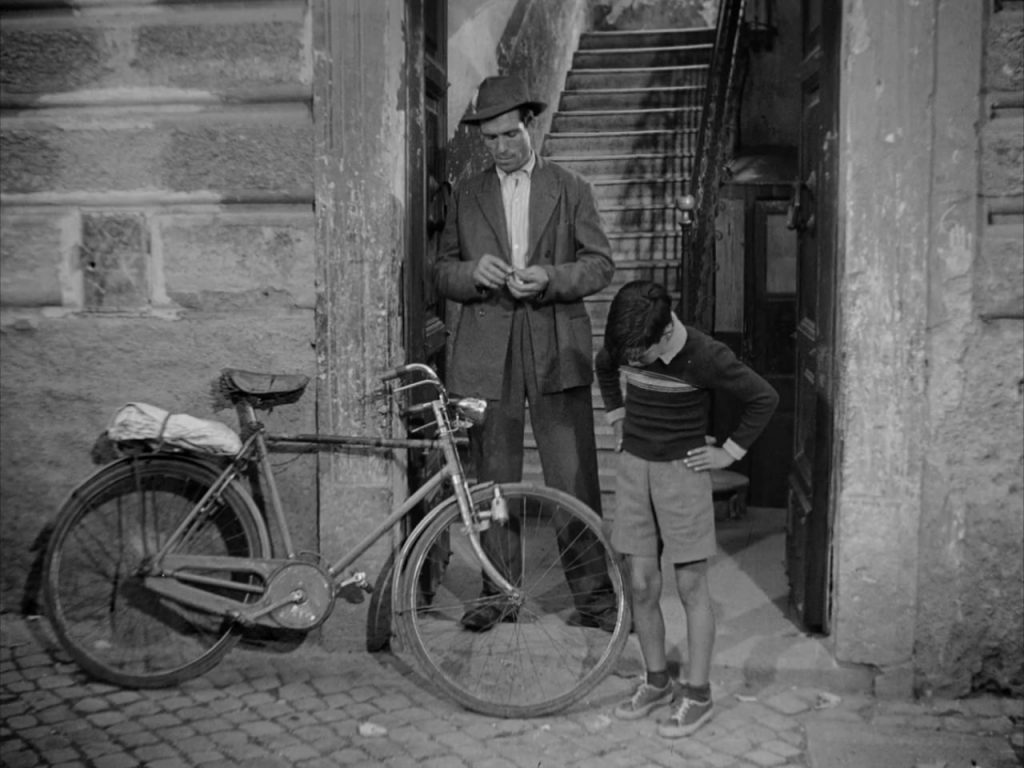
Year: 1948
Director: Vittorio De Sica
Genre: Drama
Cast: Lamberto Maggiorani, Enzo Staiola, Lianella Carell, Gino Saltamerenda, Vittorio Antonucci, Giulio Chiari, Elena Altieri, Carlo Jachino, Michele Sakara, Fausto Guerzoni
Such a simple premise–a man’s search for his stolen bicycle through the streets of post World War II Rome, an ancient, endlessly fascinating city of contrasts. Shot on location (no sets) with only untrained actors (though you’d never know it), this prime example of Italian neorealist cinema blurs the line between fly-on-the-wall documentary and fictional narrative. Director Vittorio De Sica demonstrates how such an event that would seem a mere inconvenience to many feels like a life and death predicament to the impoverished Antonio Ricci and his family. Through Antonio’s desperate urgency, he being played by the remarkable Lamberto Maggiorani, a factory worker by trade, we understand that failure is not an option. He must recover his bike, or he won’t be able to work, and his family will starve. Along for the search comes his son Bruno played by Enzo Staiola, equally photogenic and adept at showing a range of emotion as he watches his father’s growing desperation.
De Sica expertly fuels our empathy for the Riccis right away as the film opens with a bit of tragic irony. Antonio, desperate for work is informed there’s a job available for him. The catch, he must have a bicycle. The irony is he had one and had to pawn it to put food on the table. His wife Maria (Lianella Carell) takes charge and decides they can live without their bedsheets and pawns them–because there’s nothing else of significance left to pawn–to get Antonio his bicycle back. With such a precious possession back in hand, we are in suspense every moment the bicycle is not under Antonio’s watchful eye. Later, at times as the needle-in-a-haystack search continues, we are further enlightened to Antonio’s miserable condition as he is surrounded by hordes of bicycles, the very thing he needs, but not one is his. We also see how Antonio’s desperate condition and the decisions it leads him to make affect young Bruno.
 Jacob Neff is a film enthusiast living east of Sacramento. In addition to his contributions as an admin of the Feelin’ Film Facebook group and website, he is an active participant in the Letterboxd community, where his film reviews can be found. Follow him on Facebook and Twitter to keep up with his latest thoughts and shared content.
Jacob Neff is a film enthusiast living east of Sacramento. In addition to his contributions as an admin of the Feelin’ Film Facebook group and website, he is an active participant in the Letterboxd community, where his film reviews can be found. Follow him on Facebook and Twitter to keep up with his latest thoughts and shared content.

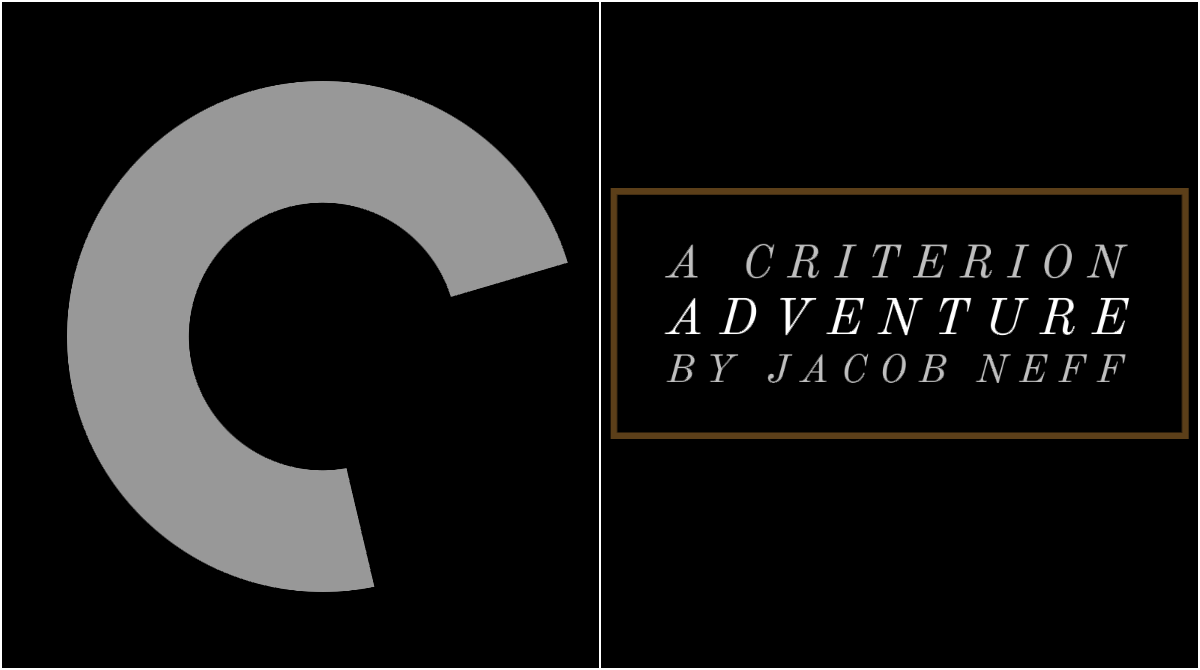

 DON SHANAHAN
DON SHANAHAN
